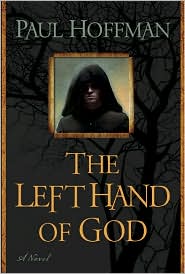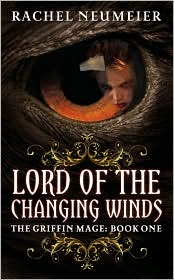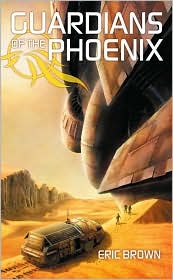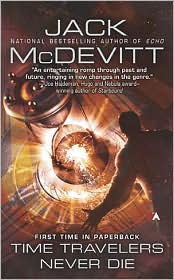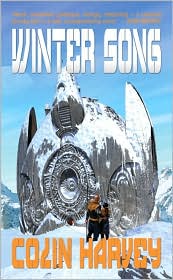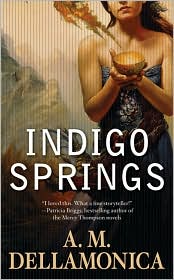 I can't remember where I saw the review of this book that convinced me to buy a copy. When I got it and saw that it was published by Harlequin Teen, though, I immediately expected the worst. Fortunately, my assumption that the book would be a shallow, poorly written romance was completely wrong.
I can't remember where I saw the review of this book that convinced me to buy a copy. When I got it and saw that it was published by Harlequin Teen, though, I immediately expected the worst. Fortunately, my assumption that the book would be a shallow, poorly written romance was completely wrong.Charlotte Silver's parents are paranormal experts who investigate haunted buildings scientifically and film documentaries about their results. As a result, Charlotte and her older sister have moved frequently throughout their lives. Charlotte's used to starting a new school almost every semester; she's also used to the way people at first think her parents are cool, then--after Halloween, typically--they start spreading rumors about seances and cults. For her senior year, though, Charlotte's thrilled that her family plans to spend the whole year in one place, and in a brand new house instead of a haunted one. She's determined to act as normal as possible. The trouble is, at her parents' latest investigation, something strange happened--and suddenly Charlotte is hearing things, seeing things, and having disturbing dreams.
I liked Charlotte, who is practical, intelligent, and friendly. Her difficulties seem real, no matter how bizarre they really are, because the writing is so good. I also liked the layers of plot going on. Charlotte doesn't just have to keep her new classmates in the dark about her parents' ghost-hunting while figuring out what to do about her own haunting, she's also dealing with a new best friend with a dark secret, a strange boy in school who everyone shuns for no reason Charlotte can figure out, her relationship with her older sister--now in college--and her parents, and what to do about her own future after high school.
The pacing starts out a little slow, but picks up after a few chapters. I enjoyed the way the various mysteries unfold and intersect, and how Charlotte's friendships develop. There's only a small romantic subplot that works well with the story and leaves the possibility open for more in the sequels.
I do want to read the sequels--I think there are two already, although this book was just published last year. That brings me to another thing: Past Midnight is very short. I read it in only about two hours. It's one of those 'bonbon books,' short and delicious and hard to stop after just one.
B&N link

